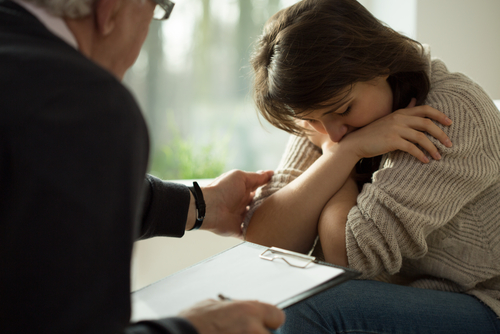
September 21st marked the changing of the seasons with the Autumn Equinox. As the weather starts to change, the sunlight hours dwindle. Though many people relish the early, colder hours of the night, many others loathe this time of year because they experience SAD.
Approximately 4-6% of people in the United States may have seasonal affective disorder (SAD), which is defined as a depression that follows the seasons. Most often people experience winter depression, particularly because during this time, daylight becomes less and temperature becomes overall colder and/or gloomy, which can have a direct impact on our mood. SAD is typically characterized by changes in appetite, low energy and an overall “heavy” feeling, a tendency to oversleep, irritability, increased sensitivity to social rejection, and more. Like general depression, it’s not uncommon for those with SAD to also experience feelings of helplessness, guilt, and physical problems such as migraines or chronic pain.
Since SAD can impact daily life, it’s important that proper treatment is sought out. Self-medication, such as with alcohol, could become a potential risk factor if you begin drinking to satisfy feelings of loneliness or isolation. The involvement of alcohol use disorder (AUD) alongside SAD can certainly make things worse, including sleep. A 2017 study conducted by researchers from the National Institute for Health and Welfare in Finland sought to explore the effects of SAD, AUD, and both combined on sleeping patterns of individuals. A total of 298 people met the criteria for SAD, 359 people met the criteria for an AUD, and 69 people met the criteria for both SAD and an AUD. Two other groups were included who did not classify as either, to serve as a comparison group. The researchers conducted several questionnaires regarding one’s alcohol use and sleeping patterns, and found the following:
- Participants with both SAD and an AUD experienced the highest levels of sleeping issues reported out of all groups
- Due to this, individuals with both SAD and an AUD also experienced more tiredness during the day – which has been found to lead to exacerbation of symptoms in depression.
If you are experiencing both SAD and an AUD, you likely have a dual diagnosis, also known as comorbidity. A dual diagnosis is present if more than 1 condition exists at the same time, and it’s incredibly important that you work with a treatment center that specializes in this. If you haven’t already, speak with a someone today to learn more about options that may best suit your needs.
You don’t have to turn to harmful behaviors and substances to cope with the pain of depression, trauma, or any other issue. Healing and recovery is possible for anyone who seeks it. Call The Guest House Ocala today for information on our residential programs of care for trauma and our specialized approach to providing concierge-style treatment. Your story isn’t over yet. Start your new chapter today: 855-483-7800